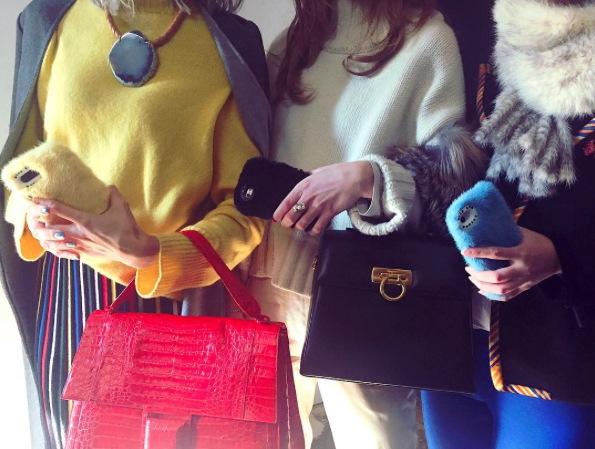Wild and Woolly: Investment banker quits job to launch £300 iPhone cases made from real animal fur
Prices start at a lofty £305

A high-flying woman who left the world of investment banking in favour of fashion has launched a controversial range of real fur accessories – and now counts the Kardashians among her clients.
Based in New York, Nina Cheng, 31, was born in Liaoning, China, and worked in investment banking at JP Morgan and private equity at Fortress Investment Group.
But, after designing a phone case to keep her hands warm during winter, she left the finance industry for good to launch Wild and Woolly – a real fur accessory brand that makes iPhone cases from pelts such as mink and fox.
She says she receives a negative reaction from some people, but says she is comfortable that the fur has come from third-party audited ethical sources where animals are not cruelly treated prior to being killed.
That includes buying it from villagers in Western Alaska who lead a subsistence lifestyle and sell fur to survive, and from SAGA Furs in Finland.
The idea came about when Cheng wanted to be able to use her phone during a freezing winter in New York and couldn’t find an existing product on the market.
After creating a case herself, she became barraged by strangers desperate to know where they could buy one and within an hour, she had her first paying customer.
Her products quickly gained traction with street style stars sporting her phone cases and earrings during Fashion Week. Soon enough, stylists and retailers were contacting her while a major magazine announced that her products had officially reached It girl status.
Now sold in high end stores like Harvey Nichols and Browns, Cheng’s brand has become a firm favourite among models, style icons and royalty including Kim Kardashian, Kylie Jenner, Lady Amelia Windsor and Caroline Vreeland.
But, despite its success, Cheng admits that there have been negative reactions to her use of real fur even though she insists it is sourced ethically.
“I definitely have. It’s been severe at times,” she told Femail.
“My view is that if you’re arguing against the use of fur for animal welfare reasons, you should probably try to influence the brands who have no concern for where their furs come from and are just buying the cheapest out there, as opposed to terrorising those that go out of their way to buy from the strictest and most reputable sources and countries.'
Sourcing most of her fur from Saga Furs – which she says is considered the industry leader in responsible fur farming and transparency – Cheng says that more and more customers are starting to realise that not all fur is bad fur.
“Similar to how some consumers have realized there is a difference between grass-fed, pasture-raised cows and grain-fed cows raised in crowded feedlots,” she explained.
“In countries with regulations in place, such as the US or in the EU, fur is the strictest of all the animal industries, far more than leather, dairy, or meat.”
Join our commenting forum
Join thought-provoking conversations, follow other Independent readers and see their replies
Comments
Bookmark popover
Removed from bookmarks